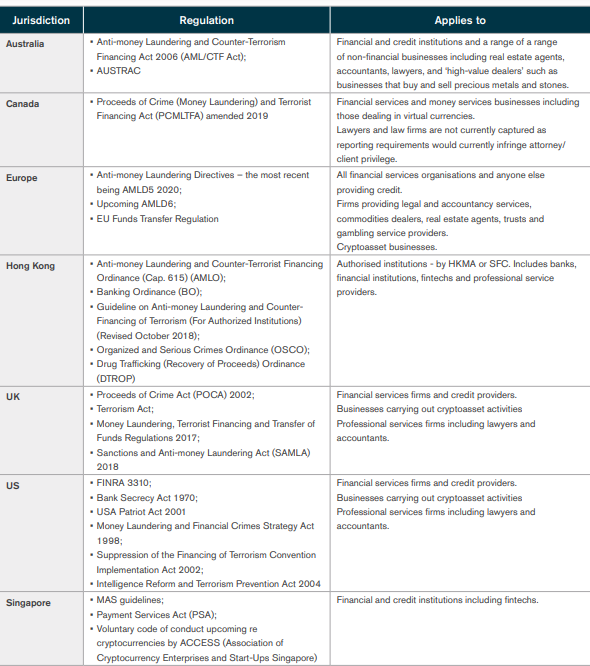Overview of the key, global anti-money laundering (AML)/counter-terrorism financing regulations by jurisdiction
Source: GreySpark analysis
For Corporate Investment Banks (CIBs) and non-bank brokerage firms, violation of local and regional AML and counter-terrorism financing laws can lead to heavy fines, and in some cases, criminal prosecution of specific individuals or the institution.
As such, the Financial Action Task Force (FATF) - which is an intergovernmental organisation established to combat money laundering and the financing of terrorism in 39 member countries -present the de facto standards of financial crime prevention that most sellsides adhere to.
The standards include:
A Risk-based Approach – Putting mechanisms in place to monitor or mitigate AML;
Sanctions – Maintain the ability to implement institutional-level sanctions on entities that pose terrorism financing risks;
Client Due Diligence – The ability of an institution to put measures in place to prevent anonymous account opening;
Politically Exposed Persons (PEPs) – The ability of an institution to implement measures to deal with the risks that they can present;
Virtual Assets – The ability of an institution to extend its compliance with AML or counter-terrorism financing regulation to include crypto assets;
Wire Transfers – The ability of an institution to create an audit trail of domestic / cross-border wire transfer activity;
High Risk Countries – The ability of an institution to implement enhanced due diligence on all business activities originating within specific countries; and
Suspicious Transactions – The presence within a CIB of a so-called financial intelligence team to which all flagged transactions can be reported for further, internal investigation.




